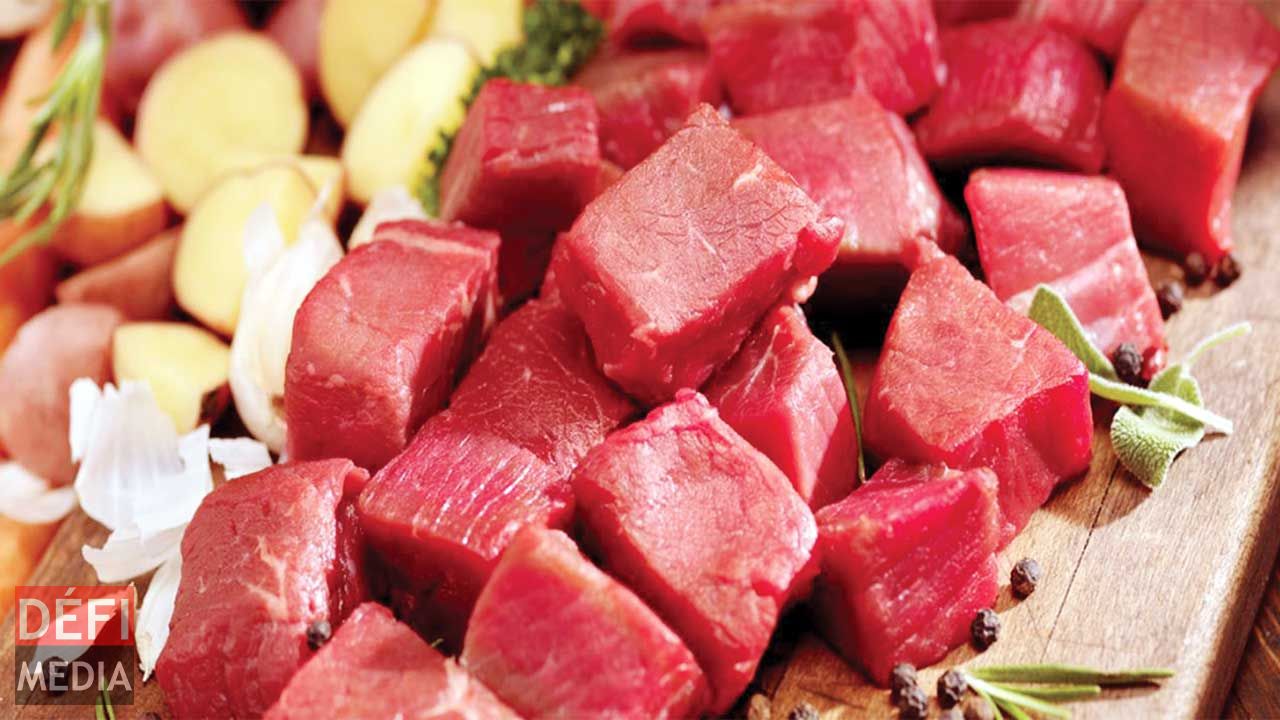
CAP: “This is not the first time that beef market is under scrutiny”
Beef eaters all over the island are scandalised following the unilateral increase of the price of beef by Rs 11 on each kilo, and which took effect on Monday 12 June. The Consumer Advocacy Platform (CAP) seeks redress from the Competition Commission.
Publicité
 The Consumer Advocacy Platform (CAP) has filed a complaint with the Competition Commission of Mauritius (CCM) requesting the latter to decide whether this decision, which comes into effect at a time when the ministry of Agro-Industry is inviting interested parties to apply for import permit, may be related to an abuse of dominant position by the principal importer of slaughter cattle, namely Socovia. News on Sunday sought the views of Mosadeq Sahebdin, who is a keen observer of the beef business in Mauritius but also as the president of CAP, on the matter.
The Consumer Advocacy Platform (CAP) has filed a complaint with the Competition Commission of Mauritius (CCM) requesting the latter to decide whether this decision, which comes into effect at a time when the ministry of Agro-Industry is inviting interested parties to apply for import permit, may be related to an abuse of dominant position by the principal importer of slaughter cattle, namely Socovia. News on Sunday sought the views of Mosadeq Sahebdin, who is a keen observer of the beef business in Mauritius but also as the president of CAP, on the matter.
“At the outset, I should inform your readers that this rise in price of beef does not affect only one community that is preparing to celebrate its religious festival in the coming days, but that it also affects all beef eaters.
It needs to be underlined that this price rise follows the publication of a communiqué by the ministry of Agro-Industry indirectly announcing a liberalisation and inviting interested parties to make themselves known within a timeframe. However, CAP notes that the conditions attached to the possibility of obtaining an import permit may constitute a foreclosure, setting a barrier to entry to new competitors and in violation of the Competition Act.
CAP’s initiative to file a complaint to the CCM is thus motivated by these two occurrences on the beef market.
Coming back to the ministry’s communiqué, it should be underlined that it is required for any potential importer to abide by a few restrictive conditions. Among these conditions, potential importers should already have quarantine facilities approved by the Division of Veterinary Services of the Ministry of Agro–Industry and Food Security, with a minimum holding capacity of 500 heads. Potential importers are advised that each importer will be required to import a minimum of 500 heads and all animals should reach Mauritius at latest by 31 July 2017 for bio-security reasons.
Furthermore, all animals will be expected to observe a pre-export quarantine period of 14 days prior to embarkation in the country of origin and which would be followed by another 14 days-quarantine period after disembarkation of the animals in Mauritius. Each importer will have to secure relevant import permit from the Ministry of Agro-Industry and Food Security as per standing procedures for importation of live animals.
According to the newly set up Association of Mauritian Butchers, these conditions are restrictive and would not be able to be satisfied. The Association does not have any quarantine facilities. Requests made to the ministry to make available to them the facilities at Richelieu seem to have been rejected. The Association of Mauritian Butchers considers, furthermore, that no importer can import 500 cattle. Cattle carriers do not carry less than 2000 slaughter cattle. Some carriers may however agree to transport a minimum of 800 cattle. It should be recalled that, following a previous enquiry into slaughter cattle market, in 2009, the Competition Commission had brought to light the fact that the big importer would not allow any competitor to use the same carrier.
The Consumer Advocacy Platform avers that such conditions may lead to foreclosure, imposing a barrier to entry to potential competitors. Section 46(2) of the Competition Act 2007 (the ‘Act’) states that a monopoly situation shall be subject to review by the Commission where the Commission has reasonable grounds to believe that an enterprise in a monopoly situation is engaging in conduct that (a) has the object or effect of preventing, restricting or distorting competition; or (b) in any other way constitutes exploitation of the monopoly situation.
As for the main importer, Socovia, who is in a dominant position on the beef market, has explained that prices had risen in South Africa. In spite of repeated demands from the press, Socovia has refused to give any additional information to justify the price increase. This would cause the price of beef sold to butchers to rise from 120 to Rs 125.50 for 500g of beef.
These are the reasons which have motivated CAP to seek the CCM’s opinion. According to information available, the Association of Mauritian Butchers has started consultations in view of pressing for a review of the prices. According to informed sources, the Association would not be ready to compete with the cartel for the forthcoming Qurbani, sacrificing of cattle on the occasion of Eid ul Adha. They have thus decided to also file a complaint with the Competition Commission seeking redress on the abuse of monopoly count.
Nevertheless, the Association of Mauritian Butchers has recently discovered other options for the import of cattle. Cattle carriers are now able to transport a minimum of 800 cattle. Although the final cost of import would be higher, due to the smaller number of cattle, the Association is confident that it can put beef on sale at a lower price than Socovia, hence its initiative to seek for quarantine facilities to enable them to obtain the required import permit.
This is not the first time that beef market is under scrutiny. By the power conferred upon the Executive Director of the Competition Commission of Mauritius (CCM) under section 51 of the Competition Act 2007 (thereinafter ‘the Act’), the CCM launched an investigation into the importation of live cattle in Mauritius on the 21st December 2009. The investigation has focused on the collaboration between Socovia Belle Vue Ltée (Socovia) and four other companies to pool their resources in order to import slaughter cattle into Mauritius. In its report, the Executive Director found that the collaboration between Socovia and the other importers was likely to be a non-collusive horizontal agreement in terms of section 44 of the Act, as the CCM considers that this collaboration was essentially a result of the historical development of the beef industry in Mauritius. However, the CCM was concerned that this collaboration might have the object or effect of preventing, restricting or distorting competition.
As a result of this collaboration, it was understood that Socovia, the only company involved in the importation of slaughter cattle in Mauritius, was in a monopoly situation in the market for the supply of slaughter cattle in Mauritius. The monopoly situation in itself is not a breach of the Act, however the CCM had investigated whether Socovia might be acting to prevent, restrict or distort competition, by limiting access to the cattle carrier which it charters to bring live cattle to Mauritius. It also needs to be recalled that, in its final report, the Commissioners did not uphold the ED’s conclusions; hence the recommendations were set aside.’
It should be noted that the Ministry of Consumer Protection and Price Control has not reacted to this rise in price. According to an officer of the ministry, the price of beef is liberalised and thus cannot be under control.

Notre service WhatsApp. Vous êtes témoins d`un événement d`actualité ou d`une scène insolite? Envoyez-nous vos photos ou vidéos sur le 5 259 82 00 !



















![[Blog] Maurice à la Croisée des Cieux - Vers une Politique Open Sky pour relancer le Tourisme, l’Aviation et l’Économie»](https://defimedia.info/sites/default/files/styles/square_thumbnail/public/170425_tourist.jpg?itok=Rc-UGYCU)





